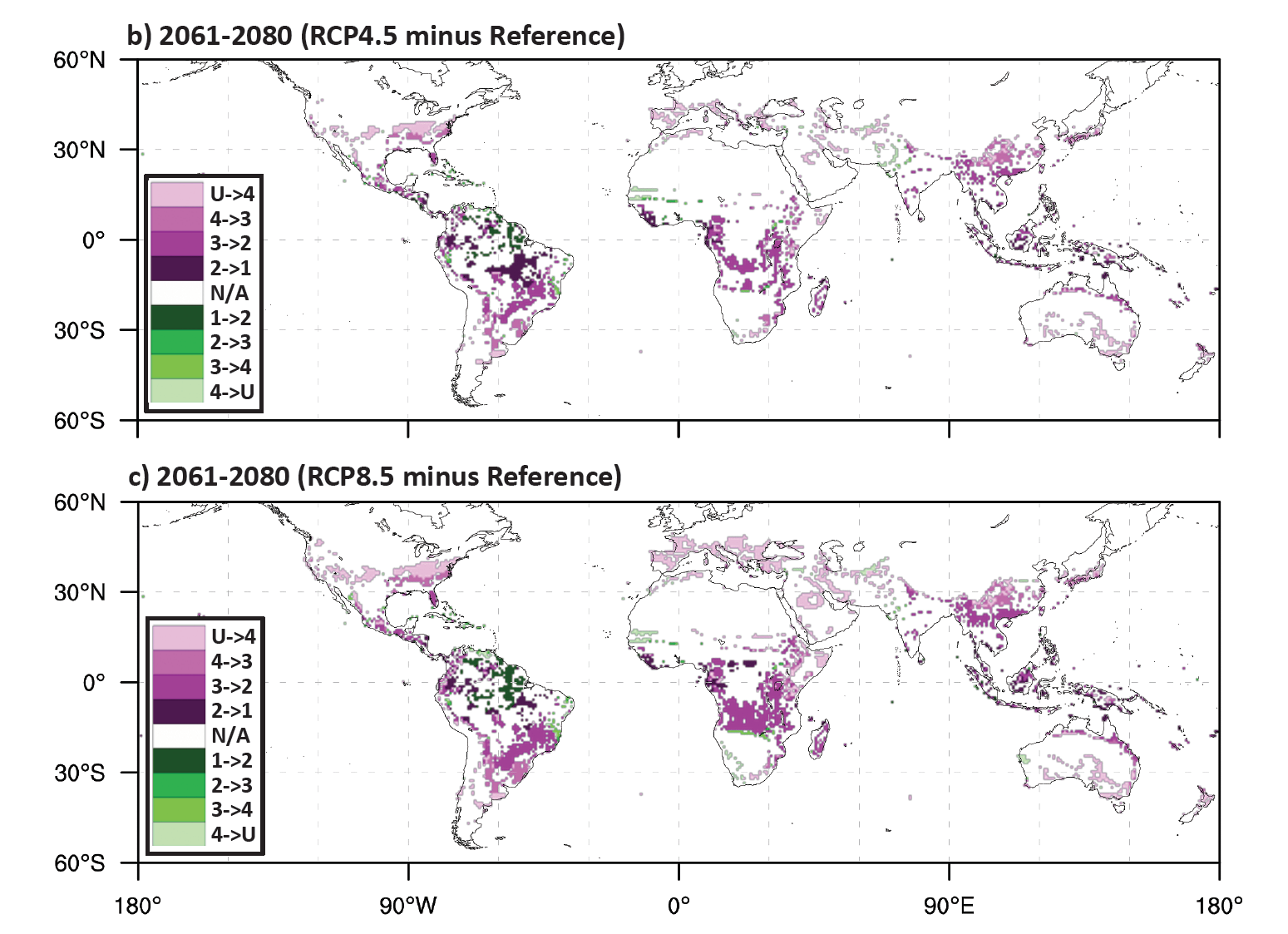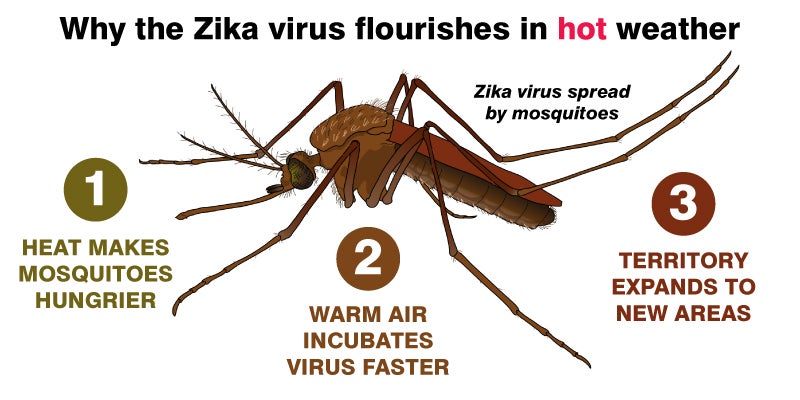
How Climate Change Affects Mosquitoes. Why Mosquito Populations Grow in Warmer Weather. If rising temperatures persist an additional 1 billion people could be exposed to disease-carrying mosquitoes by 2080 according to a study published in PLOS Neglected Tropical Diseases in March. The increased climate instability has contributed to the emergence of infections carried by mosquitoes like dengue chikungunya and zika. By the end of this century almost all of.

Marta Shocket about how climate change affects mosquitoes what that means for mosquito-borne diseases. The enlarged population will cause mosquitoes to seek more territory and the warmer climate will in turn make more territory available. Scientists broadly agree that climate change will affect insect-borne diseases but the exact consequences remain uncertain. Shifts in precipitation levels caused by climate change could also have an effect on where. BY Rob Jordan Stanford Woods Institute for the Environment. Two out of four contribute to a rapidly rising mosquito population.
The most immediate and recent effects of climate change in Louisville are warmer temperatures higher precipitation levels more severe allergies and increased water treatment costs.
Clair speaks to Dr. If rising temperatures persist an additional 1 billion people could be exposed to disease-carrying mosquitoes by 2080 according to a study published in PLOS Neglected Tropical Diseases in March. From our Viral Weather program. Development and associated humidity affects mosquito survival and flight2324 Changes in temperature precipitation and humidity were determined from recorded climatic data or from projected climatic values by use of different scenarios of climate change eg the 2014 Intergovernmental Panel on Climate Change report25 Regarding modelling. While infection with the zika virus is not new the recent epide. Shifts in precipitation levels caused by climate change could also have an effect on where.